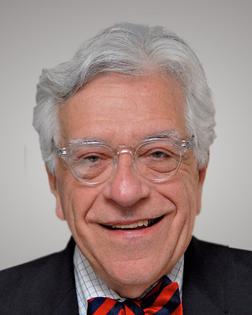The God Squad: From the mailbag about mysteries…
My deepest thanks to those dear readers who took the time to help me understand more deeply and more fully and more accurately the Christian belief that Jesus is/was both “fully divine and also fully human.”
Some of you responded with a “Solo Fides” (Faith alone) answer, like T:
Dear Rabbi, I am definitely not a religious scholar, but I believe that the Jewish religion is primarily based on history and tradition whereas Christianity is a religion based primary on faith. We do not profess to understand everything but believe it on faith alone. To us Jesus was/is both divine and human. We accept that on faith alone.
Others, like D, tried to unpack this belief in more rational ways. D referred me to a video by Bishop John Barron, one of my favorite Catholic theologians, who laid out the several responses to the question of Jesus’ divinity and humanity. The first is Monopheticism, which believed that Jesus was fundamentally and totally divine. The second called Nestorianism, which believed that Jesus was fundamentally and essentially human. The third is Arianism, which is the belief that Jesus is and was a spiritual amalgamation of both divine and human qualities.
The first diminishes Jesus’ humanity; the second diminishes his divinity, and the third is not particularly clear how Jesus could be a combination of divine and human traits while also being fully divine and fully human. Barron’s take on the fourth option which is our famous both/and belief that Jesus was/is “fully divine and fully human” was confirmed and codified during the Council of Chalcedon in 451. This option, though quite difficult to articulate encourages believers to come close to God. Baron quote St. Irenaeus, “The glory of God is a human being who is fully alive.”
I love the Irenaeus quote though I am not sure it clears up for a non-Christian what the meaning of “both/and” is for Christians. What that quote does do is build a bridge to other faiths. For example, in Buddhism some people came to the Buddha and asked him, “Are you a god or a man?” The Buddha answered, “I am awake.” In Jewish mysticism, the most highly evolved Jewish mystics do not merge into God but they become so close to God that they are kind of “glued “ to God (the Hebrew word is devekut). Maimonides thought that Moses had achieved just such an exalted status in which though fully and only human, Moses was glowing with the radiance of God’s presence.
Only Christians can believe that Jesus was fully divine and fully human but every faith holds some version of a similar belief that human beings of exquisite spiritual sensitivities can achieve a level of awareness and wisdom and love that other humans rarely if ever achieve. If we can recognize genius in music and art, why do we have such difficulty recognizing it in faith?
Thank you, dear readers, for helping me to come close to the mystery that illumes your lives and your faith. I cannot say that I share your belief but I can say that I share your love of God and of the ways God has chosen to come into our world and our lives.
And…
On the topic of why a good omnipotent God allows evil in the world, this concise and wise response from L in Pennsylvania,
Dear Rabbi Gellman,
I thought your reply to 'A' on this question was rather unnecessarily involved. I would have answered more simply that the existence of both natural and moral evil in the world says nothing about God's assumed omnipotence, omniscience and omnibenevolence. He could be all those things yet still allow evil to exist in the world if it serves His higher purpose. There is nothing anywhere in the sacred scripture of any religion of which I am aware that guarantees us God's protection from evil and suffering in this life. Indeed, most religions are more concerned with the hereafter than the here and now. We are typically exhorted by religion to endure the sufferings in this life in return for a reward in the next. The problem for 'A' is that he's been conditioned to think of God as some sort of white-bearded Santa Claus who should deliver only good things to humanity if they obey His rules. One would think that after ten or so millennia of human experience on the planet we would have concluded otherwise.
Thank you all for joining me in thinking big thoughts about the big questions.
(Send ALL QUESTIONS AND COMMENTS to The God Squad via email at godsquadquestion@aol.com. Rabbi Gellman is the author of several books, including “Religion for Dummies,” co-written with Fr. Tom Hartman.)
(c) 2020 THE GOD SQUAD DISTRIBUTED BY TRIBUNE MEDIA SERVICES, INC.










